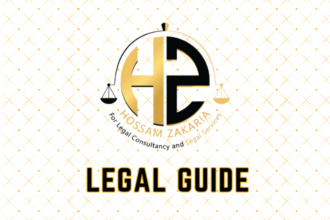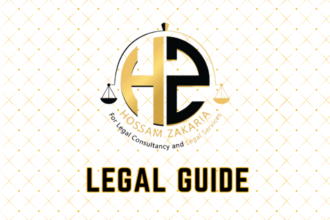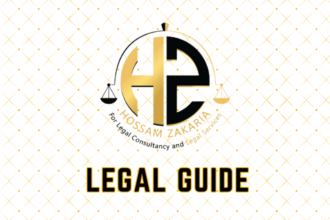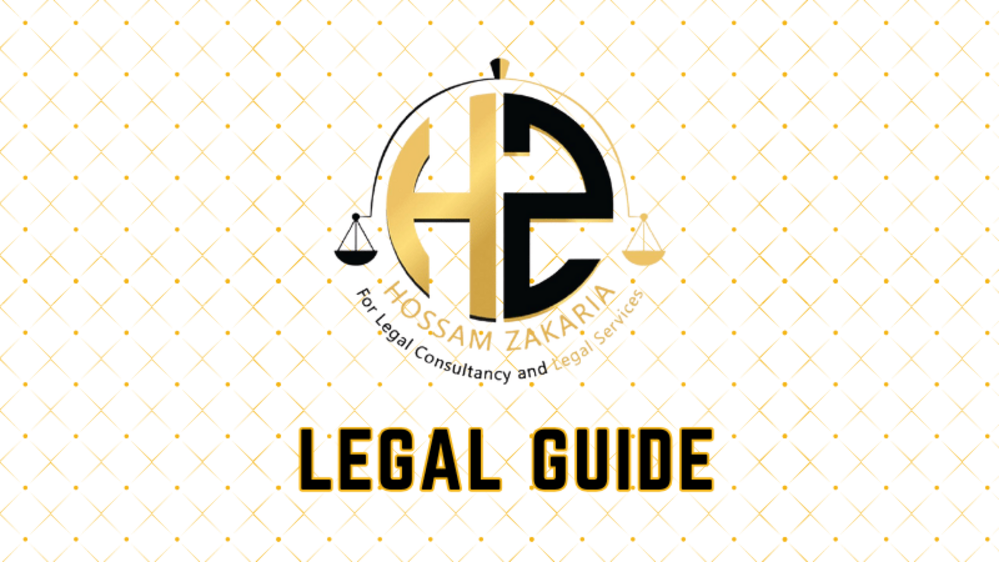Introduction: Understanding Sharia Principles in Saudi Arabian Islamic Finance
As economic collaboration between the United Arab Emirates (UAE) and Saudi Arabia deepens, UAE-based businesses are increasingly engaging in cross-border transactions and investments involving Saudi counterparts. A critical area requiring acute legal and operational awareness is Islamic finance, governed by Sharia principles, which forms the backbone of banking and investment in Saudi Arabia. The regulatory frameworks, coupled with religious mandates, present a complex terrain for UAE executives, legal practitioners, and compliance officers seeking to expand or operate within the Kingdom. Recent legislative updates in both countries, amplified by Vision 2030 in Saudi Arabia and new regulatory standards in the UAE, further heighten the importance of mastering Sharia compliance to mitigate risks and optimize commercial outcomes.
This expert analysis deciphers the core tenets of Sharia-compliant finance in Saudi Arabia, analyzes their practical implications for UAE businesses, and outlines actionable compliance strategies. By dissecting statutory provisions, government directives, and recent regulatory reforms, this briefing delivers the authoritative insight needed to confidently navigate Saudi Islamic finance within the scope of UAE law. Whether structuring cross-border joint ventures, syndications, or commercial loans, understanding these intricacies is essential to ensuring both legal compliance and commercial success for UAE stakeholders.
Table of Contents
- Overview of Saudi Arabia Islamic Finance Framework and Relevance to UAE Businesses
- Sharia Principles and Core Transactional Concepts
- Regulatory Framework: Laws, Authorities, and Harmonization with UAE Law
- Comparative Review of Core Islamic Finance Structures: Saudi Arabia and UAE
- Recent Legal Updates and Regulatory Trends (2023/2024)
- Risk Management and Compliance Strategies for UAE Businesses
- Practical Case Studies and Hypothetical Scenarios
- Penalties and Enforcement: Comparing Regulatory Approaches
- Compliance Checklist: Key Steps for UAE Entities
- Conclusion and Forward-Looking Perspective
Overview of Saudi Arabia Islamic Finance Framework and Relevance to UAE Businesses
Saudi Arabia’s financial sector is fundamentally underpinned by Sharia principles, which shape the development, offering, and governance of financial products throughout the Kingdom. The Saudi Central Bank (SAMA) and the Capital Market Authority (CMA) are the main regulatory bodies overseeing relevant sectors, with regulations crafted to ensure full compliance with Islamic jurisprudence (fiqh al muamalat). For UAE businesses – whether financial institutions, family groups, startups, or conglomerates – understanding these frameworks is essential, as Saudi regulations affect everything from lending and investment structuring to dispute resolution and capital repatriation.
Legal and Regulatory Bodies
- Saudi Central Bank (SAMA): Oversees and regulates banks, including Islamic banking sectors, ensuring all financial products adhere to Sharia principles.
- Capital Market Authority (CMA): Supervises capital market activities including Sukuk, equity, and investment funds, with an explicit Sharia compliance mandate.
- Permanent Committee for Scholarly Research and Ifta (General Presidency of Scholarly Research and Ifta): Issues fatwas and religious opinions that impact financial practices and legal interpretations.
For UAE entities, successful cross-border operations depend on harmonizing internal compliance protocols, as defined under UAE law, with the bespoke requirements established under Saudi law. This is particularly relevant following the Federal Decree-Law No. 14 of 2018 on the Central Bank and the Organization of Financial Institutions and Activities in the UAE, which aligns with global regulatory best practices but also acknowledges the importance of Sharia-compliant finance in regional operations.
Sharia Principles and Core Transactional Concepts
Foundational Pillars of Sharia-Compliant Finance
Islamic finance is governed by unique jurisprudential bans and obligations:
- Prohibition of Riba (Interest): Any predetermined interest on loans is strictly forbidden under both Saudi and UAE Sharia frameworks.
- Gharar (Ambiguity, Uncertainty): Excessive uncertainty within contracts or transactions is not permitted, mandating clarity of obligations and deliverables.
- Maysir (Speculation): Transactions akin to gambling, or those which overly expose parties to speculation, are prohibited.
- Asset-Backed Financing: Transactions must generally be underpinned by tangible assets or services, rather than pure monetary gains.
- Profit-and-Loss Sharing: Financial partnerships must reflect a sharing of both risks and rewards, as evidenced in various partnership contract models.
Key Islamic Finance Contracts Used in Saudi Arabia
| Contract Type | Description | Application |
|---|---|---|
| Murabaha | Cost-plus financing where the financier purchases an asset and sells it to the client at a marked-up price, payable in installments. | Trade finance, working capital, inventory financing |
| Ijarah | Leasing structure where the asset is leased with ownership remaining with the lessor, ending in possible transfer. | Auto finance, equipment leasing |
| Mudarabah | Profit-sharing partnership where one party provides funds and the other managerial expertise; losses are borne by the investor only. | Investment funds, project finance |
| Musharakah | Joint venture with profit and loss sharing between partners according to pre-agreed ratios. | Real estate, large-scale business ventures |
| Istisna’a | Commissioned manufacturing/contracts to make or build goods according to agreed specifications. | Construction, infrastructure, bespoke manufacturing |
| Sukuk | Sharia-compliant investment certificates mirroring bonds but backed by tangible assets or usufruct. | Capital market fundraising, project finance |
Saudi Fatwa Committees: Legal Authority and Interpretation
Saudi fatwa committees, made up of esteemed jurists, play a quasi-legislative role. Their opinions can: (i) render a previously accepted commercial practice invalid or (ii) legitimize contested contract structures. UAE businesses must ensure constant monitoring of jurisprudential developments in Saudi Arabia, as a negative fatwa can retroactively affect validity and enforcement of existing contracts and trigger compliance risks.
Regulatory Framework: Laws, Authorities, and Harmonization with UAE Law
Primary Statutes in Saudi Islamic Finance
- Banking Control Law (Royal Decree No. M/5, 1386H): Empowers SAMA to regulate all banking operations, including oversight of Sharia-compliance programs.
- Capital Market Law (Royal Decree No. M/30, 1424H): Provides regulatory framework for capital markets, Sukuk, and investment products, all within Sharia-compliance oversight.
- SAMA’s Sharia Governance Framework 2020: Imposes specific governance requirements on Islamic finance providers, including establishment of internal Sharia boards, annual Sharia audits, and transparent disclosures.
Relevance for UAE Businesses: UAE-based banks, family offices, or investment houses that wish to access Saudi financial markets or provide products to Saudi residents must formalize Sharia boards and evidence compliance per the Saudi regulatory template.
Convergence and Divergence with UAE Law
While the UAE recognizes Sharia principles under the Federal Decree-Law No. 14 of 2018 and Central Bank circulars, the operational and disclosure requirements may differ, particularly in the process for fatwa certification, structure approval, and audit methodologies. Comparative analysis facilitates awareness of possible legal pitfalls and operational friction points.
| Requirement | Saudi Arabia | UAE |
|---|---|---|
| Sharia Supervisory Boards | Mandatory for all Islamic finance institutions; must be independent, SAMA or CMA-approved | Required per UAE Central Bank, with discretion on board composition and external/in-house models |
| Sharia Audit & Compliance Documents | Annual audits with strict reporting to SAMA/CMA | Annual Sharia reviews but less prescriptive on format and depth |
| Product Approval Process | Fatwa and regulatory approval required prior to market launch | Fatwa required but less central role of regulator in approval |
| Public Disclosure | Mandatory, in annual reports and on corporate website | Required, but limited to key financial disclosures |
| Enforcement & Penalties | Severe penalties, including license suspension/revocation | Fines and corrective directives, rare license suspension |
Comparative Review of Core Islamic Finance Structures: Saudi Arabia and UAE
Murabaha and Ijarah in Practice
For UAE businesses structuring Murabaha or Ijarah arrangements in Saudi Arabia, particular care must be taken to:
- Ensure true asset transfer (not notional paperwork)
- Document clear ownership trails and risk transfer to avoid doctrinal invalidity
- Secure product-specific fatwa clearance prior to offering products or entering contracts
By contrast, the UAE provides some flexibility in documentation sequence, although market practice increasingly favors harmonization with Saudi-style documentation where cross-border compliance is needed.
Sukuk Offerings: Dual Jurisdiction Considerations
UAE-based issuers targeting Saudi investors must ensure dual compliance: the issuer’s structure must satisfy UAE Central Bank requirements and also be validated by the CMA’s Sharia panel. Coordination with both home and host jurisdiction regulators is paramount, often necessitating the appointment of joint legal and Sharia advisors.
Table: Key Differences in Cross-Border Islamic Finance Transaction Structuring
| Aspect | Saudi Arabia | UAE |
|---|---|---|
| Asset Tracing | Strict traceability of asset transfer and documentation | Flexible, but trend toward stricter traceability |
| Resale & Repurchase (Murabaha) | Legal title/supporting documents required at each step | Sometimes handled by in-house confirmations |
| Sukuk Trustee Role | Trustee must act per CMA regulations and Sharia panel guidance | Governing law/fatwas more flexible, depending on investor base |
Recent Legal Updates and Regulatory Trends (2023/2024)
Saudi Legislation and UAE Reforms Impacting Cross-Border Islamic Finance
- Updated SAMA Sharia Governance Framework (2023): Enhanced requirements for audit processes, reporting, and external Sharia board independence. UAE entities with Saudi operations must adjust internal governance structures accordingly.
- UAE’s Federal Decree-Law No. 14 of 2018 (as amended 2023): Expanded scope and enforcement powers, particularly in cross-border Sharia product marketing, with mandatory reporting for associated risks and disclosures. UAE financial institutions must align risk management and marketing approval processes with Saudi requirements when dealing with Saudi clients.
Harmonization Initiatives
Both the UAE and Saudi Arabia continue to cooperate bilaterally and through GCC structures to foster regulatory convergence. SAMA and the UAE Central Bank have increased mutual recognition of Sharia board qualifications and product certifications, smoothing entry for UAE-based banks and finance companies targeting Saudi markets.
Risk Management and Compliance Strategies for UAE Businesses
Risks of Non-Compliance
- Legal and Regulatory Actions: Non-compliance may trigger SAMA or CMA investigations, resulting in significant fines, cessation of business, or reputational harm.
- Civil Claims: Transactional invalidity can lead to civil liability, clawback of profits, or unwinding of contracts.
- Criminal Sanctions: Repeat or egregious violations can entail criminal prosecutions, especially around anti-money laundering (AML) and counter-terror financing breaches – now a focus area per both Saudi and UAE law.
Recommended Compliance Strategies
- Internal Audit and Gap Analysis: Conduct granular risk assessments to benchmark current practices against Saudi regulatory standards and SAMA mandates.
- Sharia Board Coordination: Formalize direct engagement between UAE and Saudi-based Sharia boards to ensure consistent legal positions and avoidance of doctrinal conflicts.
- Contractual Protections: Insert dispute resolution provisions referencing Saudi courts/arbitration, with express language on Sharia compliance representations and warranties.
- Training and Continuing Legal Education: Ensure in-house counsel, compliance teams, and managers are updated through routine professional development and monitoring of official Saudi and UAE legal gazettes.
- Regulatory Liaison: Appoint dedicated regulatory affairs managers for dealings with SAMA, CMA, and relevant UAE government entities.
Visual Suggestion
Recommended Visual: Compliance Workflow Diagram illustrating the lifecycle of an Islamic finance transaction from initial structuring through legal review, Sharia board sign-off, product launch, and ongoing audit. This graphic helps demystify the end-to-end compliance journey for executives and legal teams.
Practical Case Studies and Hypothetical Scenarios
Case Study 1: UAE Bank Launching Islamic Trade Finance in Saudi Arabia
Facts: A major UAE bank seeks to provide Murabaha-based trade finance facilities to a Saudi conglomerate.
- The bank must re-engineer its document templates to meet SAMA’s asset transfer documentation mandates.
- It secures pre-approval from both its internal Sharia board and the Saudi conglomerate’s Sharia advisors.
- After a negative fatwa from a local Saudi Sharia committee, the deal’s structure is revised, including enhanced disclosure of underlying asset flows and risk sharing arrangements.
Takeaway: Proactive Sharia board collaboration and real-time regulatory monitoring are critical to avoid costly restructuring and delays.
Case Study 2: UAE Family Office Investing in Saudi Sukuk
Facts: An Emirates-based private office wishes to diversify into Saudi corporate Sukuk.
- It identifies differences in trustee roles and post-issuance reporting between UAE and Saudi Sukuk frameworks.
- Engages external legal counsel versed in both CMA and UAE Central Bank requirements to ensure holistic regulatory coverage.
- Implements additional due diligence and periodic compliance checks for ongoing Sukuk management per Saudi standards.
Takeaway: Cross-border investment structures necessitate dual regulatory compliance, robust documentation protocols, and multi-jurisdiction legal audits.
Penalties and Enforcement: Comparing Regulatory Approaches
| Infraction Type | Saudi Arabia (SAMA/CMA) | UAE Central Bank |
|---|---|---|
| Offering non-compliant Islamic finance products | License suspension, public censure, fines up to SAR 10 million | Fines, suspension, mandates for business re-alignment |
| Failure to maintain adequate Sharia governance | Suspension, regulatory monitoring, board member removal | Notices, fines, remedial actions requirements |
| Inaccurate disclosures to authorities | Criminal prosecution, rescission of contracts | Fines, requirement for corrective reporting |
| Repeat or willful breaches | Permanent disqualification from Saudi financial sector | Escalating fines, possible disqualification |
Visual Suggestion
Recommended Visual: Penalty Comparison Table to clarify enforcement risks and support risk awareness training for compliance teams.
Compliance Checklist: Key Steps for UAE Entities
| Step | Action Item | Best Practice |
|---|---|---|
| 1 | Review Saudi regulatory requirements (SAMA, CMA) | Engage external legal advisors for a comprehensive analysis |
| 2 | Establish or coordinate Sharia boards | Formalize engagement protocols with both UAE & Saudi scholars |
| 3 | Pre-clear all Islamic financial products/services | Obtain written fatwas, maintain documentary records |
| 4 | Update internal policies and procedures | Align with latest regulatory developments and compliance dashboards |
| 5 | Conduct annual Sharia audits | Use independent reviewers with cross-border expertise |
| 6 | Formalize dispute resolution protocols referencing Saudi law/arbitration | Use precise contractual language and preferred arbitration institutions |
| 7 | Monitor official gazettes and legal updates | Subscribe to Ministry of Justice and regulatory announcement feeds |
Visual Suggestion
Recommended Visual: Compliance Readiness Checklist offering a practical self-evaluation tool for managers before committing capital or launching products in Saudi Arabia.
Conclusion and Forward-Looking Perspective
Saudi Arabia’s Sharia-driven regulatory environment will continue to play a central role in regional finance, particularly as the Kingdom accelerates its Vision 2030 transformation and as cross-GCC commerce grows. Alignment of internal governance practices, Sharia supervision, and documentation protocols is no longer optional for UAE businesses – it is now a strategic imperative. With regulatory convergence increasing, especially in the realm of fatwa recognition and Sharia audit standards, those who continuously monitor legislative updates and invest in cross-jurisdictional compliance will be best positioned to seize new opportunities and mitigate legal risk.
UAE entities are urged to adopt a proactive, collaborative approach: investing in regulatory intelligence, seeking board-level buy-in for compliance initiatives, and developing robust legal response plans for evolving Sharia standards. By embedding best practices early, organizations not only ensure regulatory adherence but also gain reputational advantages in the fast-evolving Gulf financial ecosystem.



